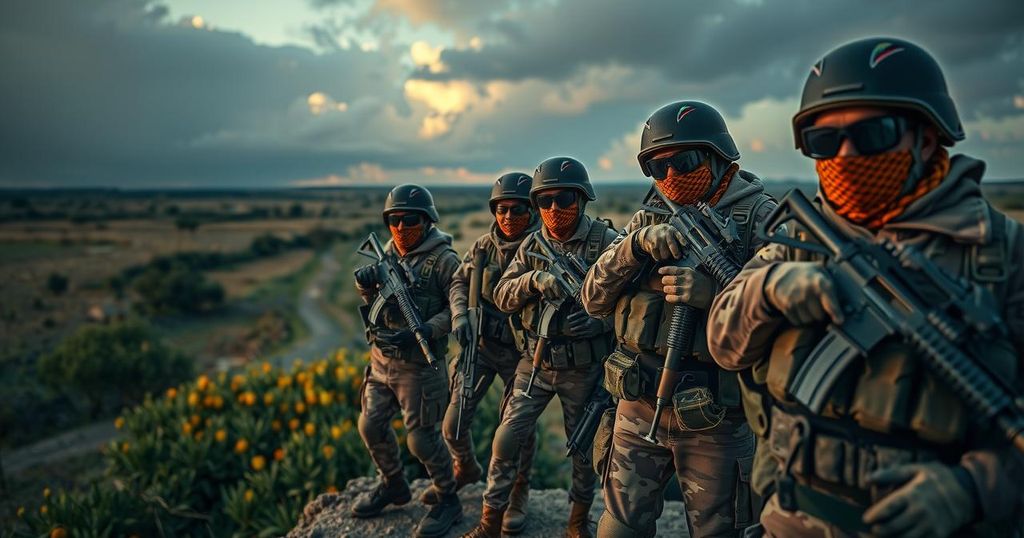The Sudanese ambassador to Tunisia condemned the influx of mercenaries from neighboring countries and rejected international peacekeeping forces, asserting Sudan’s capacity for self-security amid ongoing conflict with the Rapid Support Forces, which have caused widespread displacement and violence.
The Sudanese ambassador to Tunisia, Ahmed Abdel Wahid Ahmed, articulated strong objections to the influx of mercenaries from neighboring countries, notably Libya, Chad, and Niger, during a recent press conference in Tunis. He emphasized that Sudan does not require military assistance, but rather seeks to halt the continual arrival of foreign fighters. Ambassador Ahmed expressed concern that even as thousands of mercenaries are removed, an equal number continues to infiltrate Sudan. Furthermore, he firmly rejected the deployment of international peacekeeping forces, asserting that the Sudanese army is capable of maintaining security within the nation. The ongoing conflict between the Sudanese army and the Rapid Support Forces has generated a significant humanitarian crisis, with approximately 13 million Sudanese displaced as a result of the violence—10 million driven internally and around 3 million seeking refuge abroad. Tragically, the death toll in Khartoum alone has reached 5,000. Highlighting the serious challenges posed by the Rapid Support Forces, the ambassador condemned their actions as contrary to ethical and humanitarian standards. He pointed to their control over South Darfur, a resource-rich area where grave crimes have been committed, as well as their encroachment into Khartoum neighborhoods, complicating the army’s efforts to reclaim these territories. He called for the United Nations to formally denounce these egregious actions. Additionally, Sudan’s representative to the United Nations, Al-Harith Idris, accused forces loyal to Libyan warlord Khalifa Haftar of supplying the Rapid Support Forces with weaponry across the border from Kufra, underscoring the complicated dynamics of regional conflict that exacerbate Sudan’s struggles.
Sudan is currently embroiled in a severe conflict between its national army and the paramilitary Rapid Support Forces (RSF). This ongoing struggle has led to significant humanitarian crises, manifesting as widespread displacement and violence across the nation. The influx of mercenaries from neighboring countries has further complicated the situation, contributing to instability and violence within Sudan. The international response to this crisis, including potential peacekeeping forces, remains a contentious issue for Sudanese leadership, who believe in maintaining their sovereignty and military capabilities.
In summary, the Sudanese government is facing immense challenges from external mercenary forces, particularly in the context of ongoing internal conflict with the Rapid Support Forces. The significant displacement of civilians illustrates the humanitarian toll of this conflict, drawing attention to the need for international condemnation of the RSF’s actions. Despite calls for international assistance, Sudanese authorities maintain that they can handle the situation internally without foreign intervention, reflecting concerns over sovereignty and security in a volatile region.
Original Source: libyaobserver.ly






